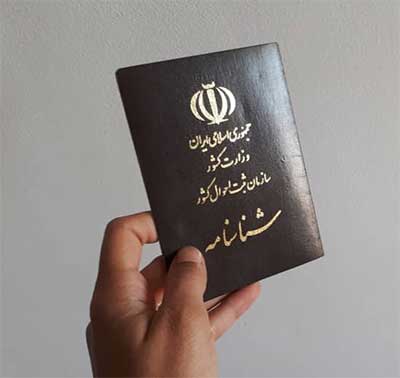Iran’s move to give nationality to thousands of children born to Iranian mothers and non-Iranian fathers
The Government of the Islamic Republic of Iran’s recently decided to give nationality to thousands of children born to Iranian mothers and non-Iranian fathers. With this such childrens will receive their long-awaited Iranian identity document – known as a ‘Shenasnameh. The human refugee agency UNHCR welcomed this move of Iran as a symbol of gender empowerment.
under new law , 75,000 children in Iran will get Iranian nationality. According to the Government of Iran, nearly 75,000 children at risk of becoming statelessness are eligible for Iranian citizenship under a new nationality law, which was amended in 2019 to allow children under 18 years to apply for the identity documents. stateless people can face a lifetime of exclusion and discrimination and are often denied access to education, health care, and job opportunities – making them vulnerable to exploitation and abuse.
Although Iran is not party to the UN Conventions on Statelessness, the Government of Iran is taking steps towards the prevention and reduction of statelessness in the country.
New law a tool of gender equality :
By allowing Iranian mothers to pass their nationality to their children, the law also marks a ground-breaking step towards reducing the gender gap in Iran, where nationality used to be passed on mainly by fathers.
What is statelessness ?
The international legal definition of a stateless person is “a person who is not considered as a national by any State under the operation of its law”. In simple terms, this means that a stateless person does not have a nationality of any country. Some people are born stateless, but others become stateless.
Statelessness can occur for several reasons, including discrimination against particular ethnic or religious groups, or on the basis of gender; the emergence of new States and transfers of territory between existing States; and gaps in nationality laws. Whatever the cause, statelessness has serious consequences for people in almost every country and in all regions of the world.
What are the causes of statelessness?
Gaps in nationality laws are a major cause of statelessness. Every country has laws which establish under what circumstances someone acquires nationality or can have it withdrawn. If these laws are not carefully written and correctly applied, some people can be excluded and left stateless. An example is children who are of unknown parentage in a country where nationality is acquired based on descent from a national. Fortunately, most nationality laws recognize them as nationals of the state in which they are found.
Another factor that can make matters complicated is when people move from the countries where they were born. A child born in a foreign country can risk becoming stateless if that country does not permit nationality based on birth alone and if the country of origin does not allow a parent to pass on nationality through family ties. Additionally, the rules setting out who can and who cannot pass on their nationality are sometimes discriminatory. The laws in 27 countries do not let women pass on their nationality, while some countries limit citizenship to people of certain races and ethnicities.
Another important reason is the emergence of new states and changes in borders. In many cases, specific groups can be left without a nationality as a result and, even where new countries allow nationality for all, ethnic, racial and religious minorities frequently have trouble proving their link to the country. In countries where nationality is only acquired by descent from a national, statelessness will be passed on to the next generation.
Finally, statelessness can also be caused by loss or deprivation of nationality. In some countries, citizens can lose their nationality simply from having lived outside their country for a long period of time. States can also deprive citizens of their nationality through changes in law that leave whole populations stateless, using discriminatory criteria like ethnicity or race.








